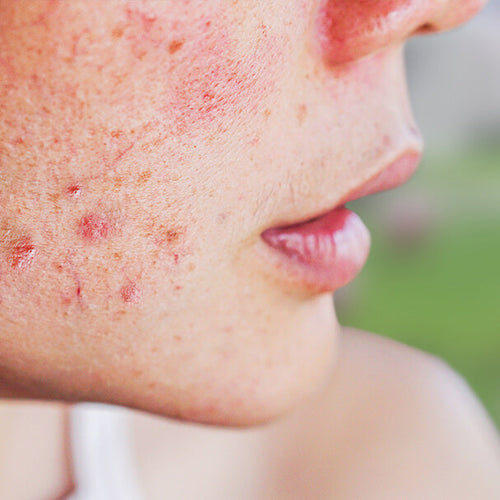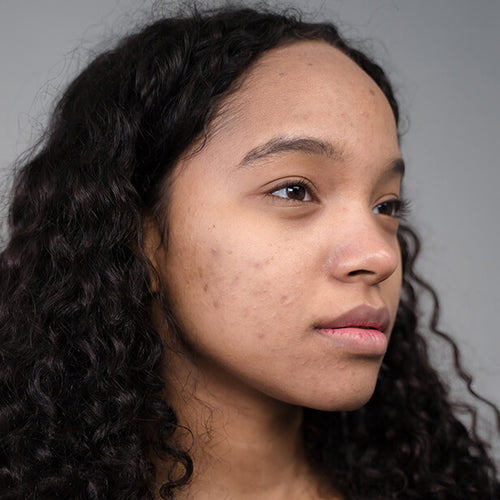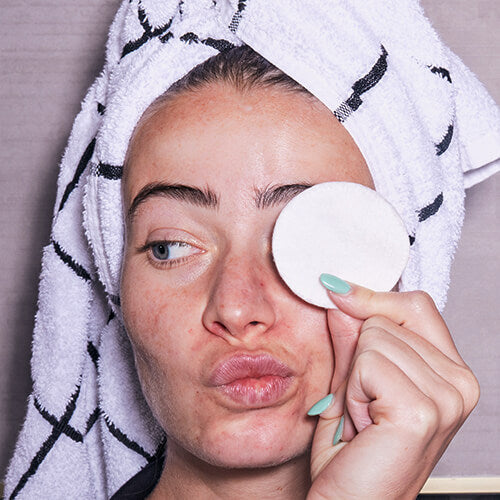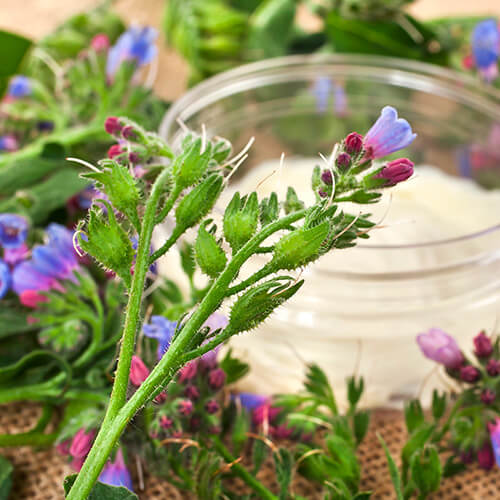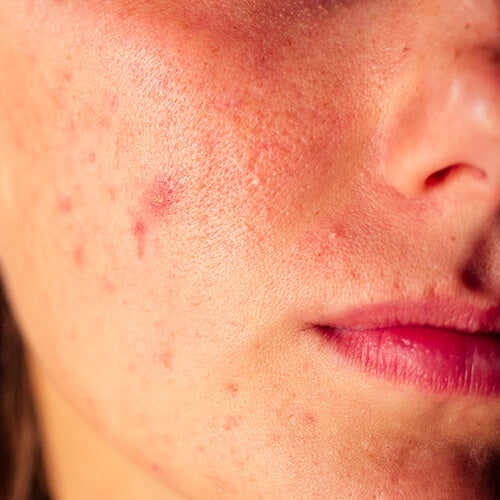
How to Treat Acne When You Have Sensitive Skin
Tips to tackle acne — without irritating your sensitive skin — from our founder, Dr. Pimple Popper.Published:
2 minute read
When you have sensitive skin, the last thing you want is an acne treatment that adds to your redness and irritation. We know what you’re thinking: isn’t gentle acne treatment an oxymoron?
Here’s the good news: according to Sandra Lee, MD (aka Dr. Pimple Popper), there are products out there that treat and prevent acne and are formulated with ingredients that aren’t harsh. Here are her tips on treating acne when you have sensitive skin.
Avoid physical scrubs
Knowing that a buildup of dead skin and oil is a primary driver of acne, it can be tempting to slough it all away with a satisfying scrub. But physical exfoliants — like sugar, citrus peel, and crushed lava — can be too abrasive for sensitive skin. Scrubs can irritate existing pimples and create new C. acnes infections by causing micro tears in the skin.
Be smart with chemical exfoliants
Alpha hydroxy and beta hydroxy acids are clinically-proven to be effective in treating acne. Glycolic and lactic acids, both AHAs, remove layers of dead skin which can clog pores. Salicylic acid, a BHA, exfoliates and also penetrates into pores to clear out trapped oil and debris.
Try: SLMD Salicylic Acid Cleanser
While all of this is very good for both treating and preventing acne, it’s important to listen to your skin. Over-exfoliating can irritate sensitive skin, causing redness, peeling and even upping oil production — which could actually increase breakouts.
Steer clear of synthetic fragrances
It’s important to avoid any acne products — whether cleansers, treatments or moisturizers — that contain synthetic fragrance. These are some of the most common causes of allergic reactions and irritation in skincare.
When your skin is already sensitive, adding products that provoke a reaction can make acne inflammation even worse.
Choose your treatments carefully
When you’ve got acne and sensitive skin, chances are your biggest treatment dilemma is deciding between benzoyl peroxide and sulfur. We’ve talked about weighing these options in great detail here, but the gist of it is that while both ingredients are powerful bacteria fighters, sulfur tends to be a bit gentler on your skin.
If you’re concerned about experiencing a reaction with any of your acne treatment products, try a patch test: apply a bit of product in a small area and observe what happens over the course of 48 hours. As Dr. Lee always says, listen to your skin…and consult with your dermatologist if you’re concerned about a reaction.
Try: SLMD Sulfur Lotion
Make sure you moisturize
We’ve said it before: one of the biggest mistakes people make when they’re on an acne regimen is skipping the last step — moisturizer. It’s understandable, since a lot of formulations are too greasy and clog the pores. But moisturizing is essential for protecting the skin barrier and for counteracting the drying effects of most acne treatment products.
This is another place where quality ingredients really matter, says Dr. Lee. “Look for moisturizers that are formulated for acne-prone skin,” she explains, “and don’t skip the sunscreen during the day.”
Try: SLMD Facial Moisturizer, Dual Defender

Dr. Lee's Last Word
Dealing with acne when you have sensitive skin can be tricky. I always tell patients to start slowly, with salicylic acid and sulfur to treat both comedones and active acne. Be patient, be consistent, and listen to your skin. If you don’t see results after a few months on a regimen like my SLMD Sensitive Skin Acne System, pay a visit to your dermatologist.










